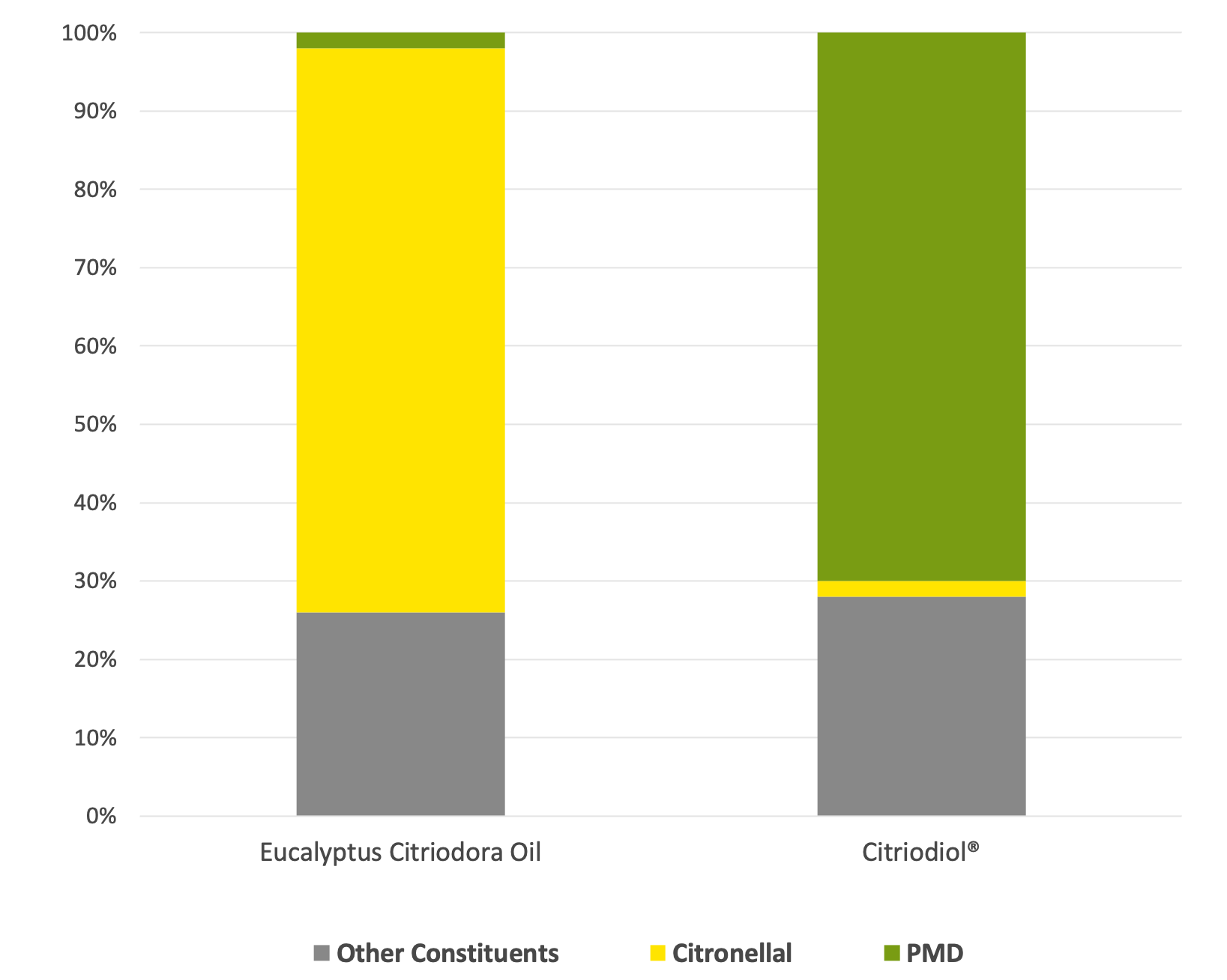Oil of Lemon Eucalyptus (OLE), also known as Eucalyptus citriodora oil, hydrated, cyclized (EC Oil (H/C)), is a naturally sourced active substance used in insect repellents, and is effective against a range of biting insects and other arthropods.
Citriodiol®, the trade name for Oil of Lemon Eucalyptus (OLE), is formed from a simple modification of sustainably harvested Eucalyptus citriodora oil (also known as Cyrombia citriodora). The main component of Citriodiol® is p-methane-3,8-diol (PMD), a compound found naturally in the leaves of the Eucalyptus citriodora tree. Importantly, Citriodiol® is known and registered by different names in jurisdictions around the world.
Head to citriodiol.com – A natural, plant-based insect repellent to find out more.
Why Citriodiol®
Product Commercialisation
Modification Process Summary
Citriodiol®’s typically contains 71% p-menthane-3,8-diol (PMD)*. Through a simple modification process, Eucalyptus citriodora oil is enriched into Citriodiol® by converting the citronellal contained within the essential oil into additional PMD, a small amount of isopulegol and PMD-citronellal acetal (all of which occur naturally in the essential oil). The remaining naturally occurring compounds are unaffected by the main process, however these constituent components work synergistically with the PMD to provide greater repellence than is found with pure, synthetically derived PMD. *guaranteed minimum 64% PMD
PMD Content
As the essential oil in the leaves of the Eucalyptus citriodora tree matures, the main constituent of the oil, citronellal, gradually converts into PMD. The production of Citriodiol® accelerates this natural process resulting in a high PMD content oil with minor isopulegol, citronellol and acetal co-constituents.
As PMD crystalises, distillation of oil containing PMD is not feasible. Our process therefore uses leaves harvested at a younger age when only a small amount of PMD is present and citronellal content is highest. We then use a dilute aqueous catalyst to convert the citronellal content to PMD, with small amounts of isopulegol and acetal as by-products. Finally, we wash out the catalyst. The result is a product that contains a minimum of 64% PMD (and usual average contain of 71%) and only a negligible amount of citronellal. In this way we are effectively mimicking nature’s own aging process. The other components in the Eucalyptus citriodora oil remain unaffected by process and are found in the same relative quantities in Citriodiol®.
It is worth noting that PMD, when applied in conjunction with the other naturally occurring constituents in the starting material (Eucalyptus citriodora), is substantially more repellent to biting insects than pure PMD.
An independent study (Drapeau 2011) comparing synthetic PMD with Citriodiol® showed that with like amounts of PMD, Citriodiol® performed 50% better at repelling the target organism (in that case Aedes mosquitoes).

Scroll to top


